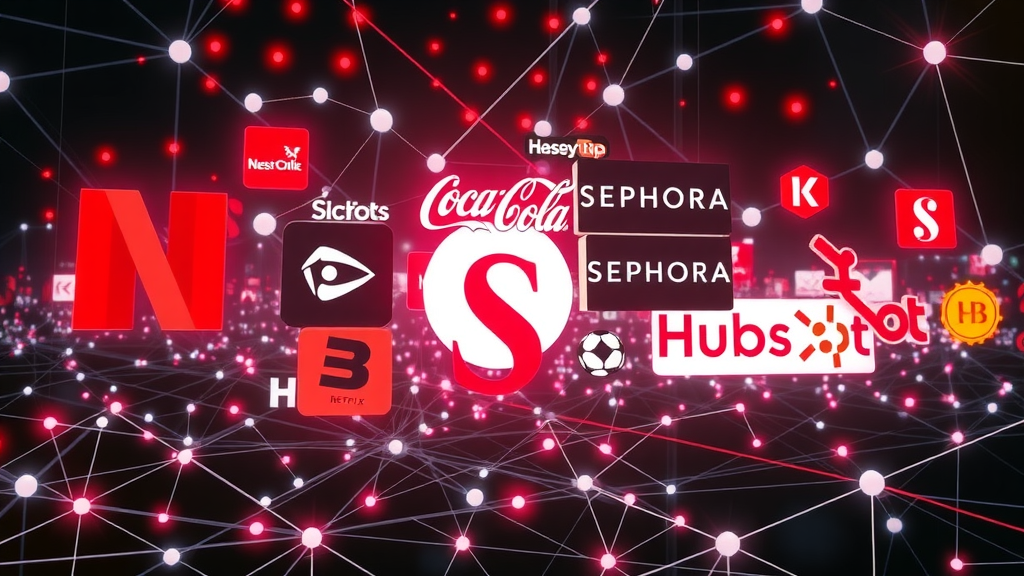Did you know that in 2023, over 80% of digital marketing leaders reported integrating AI-powered tools into their strategies? This rapid shift signals not just a trend but a transformative force that’s redefining how brands connect with their audiences. If your marketing strategy isn’t leveraging AI, you risk being left behind. In this comprehensive guide, you’ll discover the essential AI marketing strategies, top ai tools, and emerging trends you must act on to stay competitive in 2024.
AI Marketing Strategies: The Data Revolution Shaping Digital Marketing
AI marketing strategies have become the driving force behind the data revolution in digital marketing . The blend of artificial intelligence and big data has opened up new frontiers in targeting, personalizing, and optimizing marketing campaigns like never before. As marketing teams embrace ai tools and automate repetitive tasks, they’re empowered to analyze massive amounts of customer data , uncover actionable insights, and make smarter decisions faster.
For instance, a generative AI platform can sift through historical data to predict customer behavior with remarkable accuracy, enabling brands to deliver timely messages and personalized experiences. With machine learning algorithms evolving rapidly, the ai market now offers tools that dramatically improve conversion rates, content creation, and campaign effectiveness.
It’s no longer enough to use digital marketing tactics in isolation. Brands must integrate AI into their core marketing strategies, transforming how they engage customers, allocate budgets, and measure success. In 2024, the ability to harness AI will separate thriving brands from those stuck in the past.

The Unstoppable Rise of AI in Marketing: Essential 2024 Insights
In 2023, over 80% of digital marketing leaders reported integrating AI-powered tools to drive results—redefining marketing strategy for the future.
The adoption of ai in marketing isn’t simply a fleeting trend—it’s a response to the mounting pressures for deeper customer engagement and smarter content creation. Marketers now deploy ai tools for predictive analytics, automating campaign management, and content generation . The digital marketing landscape is shifting, making AI an integral part of any successful marketing strategy.
For example, leading platforms use natural language processing to optimize blog post topics for SEO, while deep learning personalizes product recommendations. These advancements enable marketers to deliver precise messaging and improve overall customer experience , giving rise to new opportunities across every digital touchpoint.
As 2024 unfolds, expect further acceleration in the ai market , with generative ai models shaping not just what we communicate but how quickly—and effectively—marketing teams can execute campaigns. Staying ahead means continually adopting, testing, and refining ai-powered marketing strategies.
What You'll Learn About AI Marketing Strategies and Their Impact
- Key benefits and challenges of implementing ai marketing strategies
- Practical examples of AI in marketing
- The latest generative ai trends revolutionizing digital marketing
- Top ai tools and their applications
- How ai market advancements are transforming content creation, customer experience, and customer data management
Digital Marketing Evolution: Why AI Tools are Now Central to Marketing Strategies
AI tools are revolutionizing digital marketing, shifting it from guesswork to a science powered by data-driven insights. The evolution isn’t just about faster automation or more content—it’s about using artificial intelligence to craft precision marketing strategies that boost ROI and forge authentic relationships with customers.
Generative AI is now at the heart of successful digital marketing. It powers content generation, personalizes marketing campaigns, and automates repetitive yet crucial tasks, freeing up marketing teams to focus on creative and strategic work. From email marketing optimization to predicting campaign outcomes with behavioral analytics, AI tools are providing a rapid competitive edge in a crowded digital market.
What’s more, the integration of cutting-edge ai tools within established digital marketing platforms enables even smaller businesses to take advantage of AI-powered solutions—democratizing access and reshaping the entire marketing landscape. Let’s dive deeper into how these ai marketing strategies are being put into practice.

Understanding the Integration of AI Marketing Strategies in Modern Digital Marketing
The integration of AI marketing strategies goes far beyond automation; it fundamentally transforms every stage of the customer journey. Leading brands leverage generative ai for content creation, real-time personalization, and customer data analysis, resulting in campaigns that outperform traditional tactics.
Consider how generative ai can rapidly generate personalized subject lines for email marketing campaigns based on customer data analysis. Or how machine learning algorithms optimize advertising spend in real time, maximizing every dollar by targeting the right audience at the right moment. The ai market is filled with such examples, each demonstrating the power of AI in reshaping digital marketing.
By embracing these tools, marketers gain a holistic view of their audience—enabling both broad brand awareness and highly tailored customer interactions. This integration is the secret to achieving sustained growth and higher conversion rates in today’s hyper-competitive environment.
- Role of generative ai in digital marketing
- Real-world case studies and statistics
- How AI is reshaping marketing strategy for 2024
Generative AI and Content Creation: The New Standard for Marketing Strategies
Generative AI has fundamentally changed the way marketing teams approach content creation. Instead of spending hours brainstorming and writing, marketers can now use AI tools to generate high-quality drafts, optimize for SEO, and tailor messaging for different customer segments—all at unprecedented speed.
Automation of content creation doesn’t mean losing creativity. On the contrary, by handling repetitive content tasks, generative AI frees up time for marketers to focus on big-picture strategy and inventive storytelling. Tools can suggest blog post topics based on trending keywords, predict which formats will resonate best with your audience, and even automatically rephrase content to match different brand voices.
Personalization is another standout advantage of generative AI. By analyzing customer data, AI tools can recommend content—such as emails, landing pages, or social media posts—most likely to drive engagement. The result? Higher conversion rates, more meaningful interactions, and streamlined campaign management.

Leveraging Generative AI for Cutting-Edge Content Generation in AI Marketing Strategies
Today’s most effective ai marketing strategies rely on intelligent content generation. AI-powered tools can analyze your customer data, predict what content will resonate, and even automate blog post writing, graphic design, and video production. This level of automation dramatically accelerates campaign timelines, enabling brands to stay agile in an ever-changing digital marketing landscape.
Generative ai tools such as Jasper AI and OpenAI’s GPT-4 scan your previous high-performing posts and recommend new content ideas specifically geared toward your audience. This means every piece of content is rooted in data-driven insights, not guesswork. For example, AI can suggest diverse blog post ideas, repackage existing articles, or generate personalized content blocks for email campaigns.
Importantly, by leveraging expansive customer data sets, generative ai allows for real-time personalization—delivering content when and where it matters most. From social media copy to full-scale digital campaigns, the combination of automation and deep learning ensures your content strategy remains effective and competitive.
- Content creation automation
- AI tools for generating blog post ideas
- Improving personalization using customer data
- Examples of AI-powered content marketing strategies
Customer Experience and Personalization: AI in Marketing’s Greatest Strength
AI marketing strategies shine brightest when it comes to customer experience and personalization. AI tools help marketers analyze customer data to not only meet, but anticipate, individual needs and preferences—dramatically improving satisfaction and loyalty.
Advanced machine learning algorithms enable real-time segmentation, allowing for hyper-personalized campaign delivery. Imagine AI customizing emails for each recipient, predicting optimal send times, and tailoring offers based on historical behavior. AI-powered chatbots now deliver 24/7 support that feels human, handling customer interactions swiftly and freeing up support teams to tackle more complex issues.
The end result is not just better campaign performance, but fundamentally richer customer experiences across every touchpoint—email marketing, website chats, social media, and beyond.

Transforming Customer Experience with AI Marketing Strategies
Personalization powered by AI isn’t a luxury—it’s become the standard for world-class digital marketing. Marketers can tailor offers, recommendations, and messaging to the individual, not just the demographic. This deep connection is the key to turning first-time buyers into lifelong advocates.
Four ways AI marketing strategies transform customer experience:
- Personalizing campaigns with AI tools
- Using customer data for behavior prediction
- Enhancing email marketing response rates
- Chatbots and virtual assistants for support
By leveraging automation, AI helps marketers not only gain actionable insights from customer data but also create seamless digital journeys that boost conversion rates and engagement. The most successful marketing teams now use these tools to orchestrate real-time interactions that leave a lasting impression on customers and prospects alike.
Table: Comparison of Leading AI Tools for Customer Experience Enhancement
| Tool Name | Main Feature | Ideal Use-Case | Pricing |
|---|---|---|---|
| Jasper AI | Content Generation | Blog Post Creation | Subscription |
| HubSpot AI | Conversational AI | Email Marketing | Freemium |
| Drift | Chatbots | Customer Engagement | Subscription |
Top AI Tools and Platforms: Essential Resources for AI Marketing Strategies in 2024
The explosive growth of the ai market has given rise to a vast ecosystem of specialized AI tools, each offering unique advantages to digital marketers. Choosing the right ai tool for your needs is critical: the right solution will boost agility, drive down costs, and deliver transformative results across your marketing campaigns.
Some ai tools excel at content generation, others at customer data analysis, while a select few combine automation with creative capabilities. Whether you're looking for a platform to automate your email marketing or a robust CRM that leverages artificial intelligence, there’s a tool designed for every use-case—and every budget.
Savvy marketing teams vet ai tools based on user experience, data security, and integration with existing workflows. The result? A marketing strategy that’s both automated and agile, capable of keeping pace with digital marketing’s rapid evolution.

AI Tool Selection: How to Find the Right Solution for Your Marketing Strategy
Selecting an ai tool starts with understanding your priorities. Is your focus on content creation, customer engagement, or data analytics? Evaluating platforms based on their core strengths, security features, and ability to balance automation with creativity will help ensure a smooth integration. For example, tools like Jasper AI excel at rapid content generation, while HubSpot AI offers robust CRM and email marketing automation.
Security and privacy must be at the forefront, especially when handling sensitive customer data. Today’s best ai tools are designed with advanced security protocols, GDPR compliance, and end-to-end encryption. These safeguards build trust and allow marketers to innovate without risking customer relationships.
Finally, a forward-thinking marketing strategy embraces a mix of generative ai platforms and human creativity. This synergy leads to campaigns that are not only efficient but also genuinely resonate with your audience.
- Criteria for selecting ai tools
- Security and privacy considerations when using customer data
- Balancing automation and creativity with generative ai
Real-World Case Studies: Success Stories of AI in Marketing
Nothing brings the benefits of AI marketing strategies to life like real-world success stories. Leading brands are already setting new benchmarks by integrating ai tools into every facet of their digital marketing efforts. These examples showcase how data-driven decision-making and automation can revolutionize marketing strategies and elevate customer engagement.
- Netflix: Personalizing content recommendations using AI and historical viewing data, enhancing customer experience and engagement.
- Coca-Cola: Deploying generative AI for highly creative, dynamic ad campaigns that capture global attention.
- Sephora: Using AI-powered chatbots for real-time, personalized customer service, streamlining support and boosting satisfaction.
- HubSpot: Automating multi-channel marketing campaigns, merging AI with robust CRM data to drive conversion rates.
As these cases reveal, the right AI tools, smart use of customer data, and a well-crafted marketing strategy can generate measurable results at scale. The future is already here—and leading brands are proving that AI in marketing is the new gold standard for digital success.

Data-Driven Marketing: Leveraging Customer Data and AI Market Trends
Data-driven marketing lies at the heart of modern digital strategies, and AI market advancements have supercharged this approach. The effective use of AI tools allows brands to extract actionable insights from massive customer data sets, enabling highly targeted campaigns and predictive analytics.
However, leveraging data for marketing success also demands responsible management and ethical considerations. As regulations evolve and consumers become more privacy-conscious, your marketing strategy must reflect a commitment to transparency and trust. This means adopting ai in marketing practices that not only drive value but also protect customer interests for the long term.
Ethical AI and Customer Data Management in Digital Marketing
Ethical data practices are non-negotiable in today’s digital marketing landscape. Brands must navigate a complex web of regulations, from GDPR to CCPA, ensuring every ai-driven campaign respects privacy and secures sensitive information.
AI tools help marketers maintain transparency by providing detailed consent tracking, data access logs, and opt-out options as part of every customer journey. This builds trust and future-proofs your brand against legal and reputational risks.
Looking ahead, the winning marketing strategy will be one that fuses innovation with integrity—using generative ai and predictive analytics not just to boost ROI, but to lead with values.
- How marketers can use ai in marketing to maintain trust
- Regulations and best practices for customer data
- Future-proofing your marketing strategy
People Also Ask About AI Marketing Strategies
How is AI used in marketing strategies?
AI optimizes marketing efforts by automating tasks, segmenting audiences, personalizing experiences, and providing actionable insights from customer data.

AI in marketing is transforming the industry by automating campaign management, optimizing content creation, and analyzing customer data for predictive targeting. Modern AI tools streamline repetitive tasks, freeing marketing teams to focus on strategy and creativity. This leads to hyper-personalized experiences, higher conversion rates, and smarter allocation of marketing budgets. The integration of AI enhances decision-making at every stage, from audience segmentation to post-campaign analysis.
What is the AI tool for marketing strategy?
- Jasper AI: Content generation and blog post writing.
- HubSpot AI: CRM, email marketing, and marketing automation.
- Drift: Conversational AI for digital customer engagement.
The foundation of an effective AI-powered marketing strategy lies in the smart selection and application of these tools. Each offers specialized capabilities, from content generation to customer engagement and analytics, providing a customizable approach for different marketing goals.
What is the best example of AI in marketing?
- Netflix’s personalized content recommendations based on viewing behavior
- Coca-Cola’s use of generative ai for creative digital marketing campaigns
These examples highlight how AI analyzes vast datasets—be it customer behavior or market trends—to deliver truly customized experiences at scale. Brands leveraging such technologies set themselves apart with campaigns that are not only creative but incredibly effective.
What are the 5 ways AI is revolutionizing digital marketing?
- Personalized customer journeys
- Powerful content creation and generation tools
- Real-time data analytics for marketing strategies
- Automated email marketing and chatbots
- Enhanced customer experience through virtual assistants
By combining automation, deep learning, and natural language processing, AI marketing strategies fundamentally transform every aspect of digital marketing from strategic planning to execution and measurement.
Key Trends in AI Marketing Strategies to Watch Now

Rapid Expansion of Generative AI for Content Generation
Generative AI is redefining what’s possible in content creation. From text to video to graphics, smart algorithms produce engaging, personalized assets at scale, giving brands a clear edge in crowded digital spaces. The future trends point to even more advanced applications—such as automatic video ad generation and hyperlocal content customization—that will only accelerate as machine learning matures.
AI-Powered Personalization in Every Marketing Strategy
The next frontier is granular personalization. AI marketing strategies now leverage customer data to adapt messaging in real-time—think customized offers, product recommendations, and dynamic web content. This capability increases engagement rates and drives higher lifetime customer value.
The Growing Importance of Ethical AI and Customer Data Security
As generative AI becomes more mainstream, so does the focus on ethics and data security. Marketers must champion transparent data use, prioritize customer privacy, and seek out AI tools that adhere to the highest industry standards to maintain long-term trust.
Integration of AI Tools Across Digital Marketing Channels
The real power of modern AI marketing strategies comes from integrating these tools across every channel—email, social media, SEO, and beyond. A unified AI-powered approach ensures consistency, amplifies results, and lets brands nimbly respond to market changes as they happen.
Expert Insights: Quotes on AI in Marketing and Digital Strategies
"AI is not just another tool for marketers—it’s the new backbone of every successful digital marketing strategy in 2024." – Industry Thought Leader
Addressing the Challenges: Overcoming Obstacles to Implementing AI Marketing Strategies
Navigating Common Pitfalls in Adopting AI Tools
- Managing customer data responsibly
- Training teams on new AI in marketing technologies
- Measuring ROI of generative ai platforms
While AI holds immense promise, it’s not without hurdles. Ensuring the responsible use of customer data is crucial—not only for compliance, but for maintaining trust. Continued education and team training help marketers keep pace with technological advances and extract full value from their chosen tools. Finally, measuring the ROI of AI investments ensures that resources are allocated for maximum strategic impact.
Essential Action Steps: Kickstarting Your AI Marketing Strategy in 2024
- Assess your current digital marketing tools
- Identify areas for ai in marketing integration
- Test leading ai tools for your needs
- Evaluate customer data handling
- Create an agile marketing strategy for continuous AI adoption
Actively assessing and updating your toolkit, evaluating data practices, and building agility into your strategy will prepare your marketing team for continuous growth as the ai market evolves.
Popular Myths and FAQs About AI Marketing Strategies
-
Can AI fully replace human marketers in creating effective marketing strategies?
While AI automates many tasks, human insight and creativity remain essential for strategy, messaging, and innovation. -
Are AI tools only accessible to large enterprises?
No—thanks to SaaS solutions, even small businesses can access powerful AI tools tailored to their budgets and needs. -
How quickly can AI show measurable results in digital marketing?
AI can deliver immediate gains in automation and insights, with sustained results seen as data models refine over time.
Actionable Takeaways: Power Up Your Digital Marketing with AI Strategies
- Keep ai marketing strategies focused on customer value
- Embrace generative ai for competitive content creation
- Prioritize ethical use of customer data
- Continuously evaluate top ai tools and trends
Implementing these steps will help you future-proof your digital marketing campaigns and unlock new growth opportunities.
Looking Ahead: The Future of AI in Marketing and Digital Marketing
Preparing for the Next Wave of AI Market Innovations
- Merging AI with emerging technologies (AR, VR)
- Evolving roles for digital marketers driven by AI advancements
The integration of AI with technologies like AR and VR will create even more immersive customer experiences. As digital marketing evolves, so will the skills needed—marketers must adapt quickly, balancing technical acumen with creative thinking to leverage future trends.
Summary: Elevate Your Brand with Smarter AI Marketing Strategies in 2024
Supercharge Your Next Marketing Campaign with AI-Driven Solutions
To stay ahead, embrace AI marketing strategies that unite data, creativity, and customer value. Innovate, personalize, and always put ethics first—your brand's future in digital marketing depends on it.
Sources
- Gartner
- Salesforce State of Marketing Report
- HubSpot: Artificial Intelligence in Marketing
- Statista: AI in Marketing
- Forrester
Integrating AI into your marketing strategy is essential for staying competitive in 2024. To deepen your understanding and application of AI marketing strategies, consider exploring the following resources:
- “10 AI Marketing Strategies from Top Brands You Can Steal Today”
This article provides practical examples of how leading brands implement AI in their marketing efforts, offering actionable insights you can adapt to your own strategies.
- “Eight AI-Powered Strategies To Transform Your Marketing Strategy”
This resource outlines eight key AI-driven approaches that can revolutionize your marketing tactics, from predictive analytics to personalized customer experiences.
By leveraging these insights, you can effectively incorporate AI into your marketing initiatives, enhancing efficiency and customer engagement.
 Add Row
Add Row  Add
Add 




Write A Comment